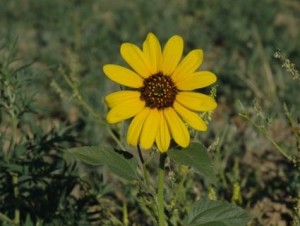 During the last few decades flowering and leafing of temperate and boreal vegetation has advanced by several days in response to warming. The climate sensitivity, as inferred from long-term observations, is estimated to be 2.5-5.0 days per degree C warming. Wolkovich et al. now show in their letter to Nature, that this response cannot be replicated in field experiments where vegetation is artificially warmed: in these experiments the warming effect on vegetation phenology is 4.0-8.5 times lower than in long-term observations:
During the last few decades flowering and leafing of temperate and boreal vegetation has advanced by several days in response to warming. The climate sensitivity, as inferred from long-term observations, is estimated to be 2.5-5.0 days per degree C warming. Wolkovich et al. now show in their letter to Nature, that this response cannot be replicated in field experiments where vegetation is artificially warmed: in these experiments the warming effect on vegetation phenology is 4.0-8.5 times lower than in long-term observations:
E. M. Wolkovich, B. Cook, J. Allen, T. Crimmins, J. Betancourt, S. Travers, S. Pau, J. Regetz, T. Davies, N. Kraft, T. Ault, K. Bolmgren, S. Mazer, G. McCabe, B. McGill, C. Parmesan, N. Salamin, M. Schwartz, and E. Cleland. Warming experiments underpredict plant phenological responses to climate change. Nature, 485:494–497, 2012. doi: 10.1038/nature11014.
Two author teams, This Rutishauser and I, and John Harte and Lara Kueppers, have been invited to comment the letter by Wolkovich et al. Our comment was published today in the same issue of Nature:
T. Rutishauser, R. Stöckli, J. Harte, and L. Kueppers. Climate change: Flowering in the greenhouse. Nature, 485:448–449, 2012. doi: 10.1038/485448a. [PDF]
We conclude and suggest:
– Temperature effects are not independent from effects of other environmental changes
– Phenology is much more than a linear correlate to annual mean air temperatures
– Wolkovich’s call for ecosystem model re-evaluation has to be taken seriously
Finally, a very interesting question arises from the work by Wolkovich et al.:
“Are temperature sensitivities derived from past phenological observations valid for application in a future, warmer climate?”
We haven’t found the answer in the scientific literature (yet!).
Sincerely,
Reto and This
